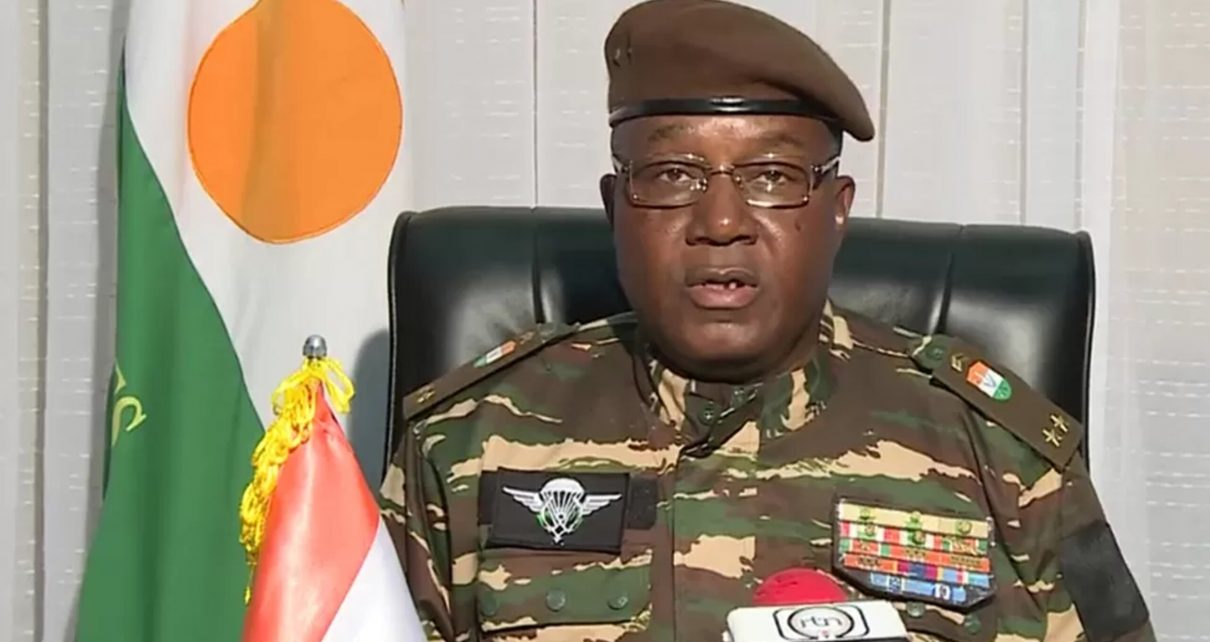The leader of Niger’s recent coup has vowed to transition the West African nation back to civilian governance within a span of three years. General Abdourahamane Tchiani conveyed this commitment following discussions with mediators from the West African regional bloc Ecowas in the capital city, Niamey.
Ecowas has issued a warning of potential military intervention should last month’s ousting of President Mohamed Bazoum not be reversed through diplomatic negotiations. In his response, the junta leader highlighted that Niger is averse to conflict but remains resolute in defending itself against any external interference.
Addressing the nation on Saturday evening, General Tchiani affirmed, “Should there be an assault on us, it will not be the straightforward task some have presumed.” He also voiced strong disapproval of what he termed “unlawful and inhumane” sanctions imposed by Ecowas on the landlocked country.
These sanctions have manifested in various ways, including electricity cuts resulting in power outages in major cities like Niamey and the obstruction of vital imports. Long queues of truck drivers awaiting permission to deliver supplies have caused severe delays, thereby contributing to a surge in food prices.
General Tchiani castigated these measures, stating, “Sanctions are not intended to reach a solution but to subjugate us and subject us to humiliation.”
On Saturday, thousands of men convened at a Niamey stadium to register for a volunteer force in the event of a potential invasion. However, logistical issues impeded the initiation of the registration process, according to Reuters.
Following discussions on Sunday, Ecowas rejected the proposed three-year timeline for the transition. Abdel-Fatau Musah, Ecowas’s commissioner for political affairs, peace, and security, indicated that Ecowas is not amenable to an extended transition period within the region. He reiterated the bloc’s insistence on a swift handover of power to civilian authorities.
The junta’s retention of authority has prompted regional and international concerns, drawing the attention of the United States and France, both of which maintain military bases in Niger as part of the broader effort to counter jihadist groups in the Sahel region.
General Tchiani, who led the presidential guard prior to the coup on July 26, cautioned against military intervention, asserting that it could exacerbate Islamist insurgencies linked to Al-Qaeda and the Islamic State group. He argued that the defence and security forces of Niger have been instrumental in thwarting terrorist threats and maintaining regional stability.
The coup in Niger mirrors similar recent upheavals in neighbouring Burkina Faso and Mali. Additionally, Russia’s growing influence in the Sahel region through its Wagner Group mercenary outfit adds a dynamic dimension to the evolving situation.
General Tchiani announced that the coup leaders would facilitate a “dialogue” to establish the transition’s framework within 30 days, but he did not go into detail about the process. This delegation was led by former Nigerian military leader Gen Abdulsalami Abubakar and included Nigeria’s senior Muslim leader, Sultan of Sokoto Muhammadu Sa’adu Abubakar III. The Sultan holds substantial influence in Niger due to historical affiliations with the Sokoto Caliphate, a potent kingdom prior to colonial rule. This marked the junta leaders’ first interaction with Ecowas leaders since the coup’s occurrence.



